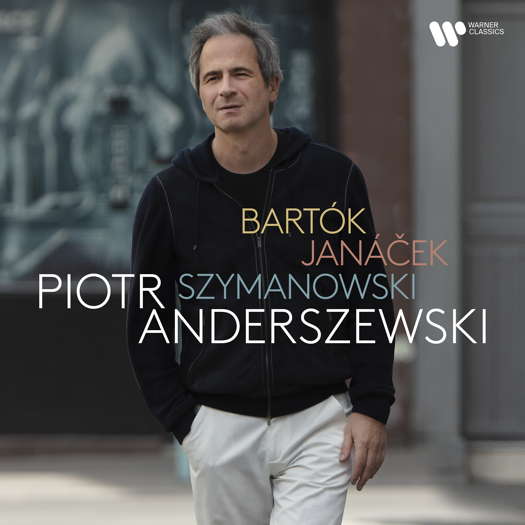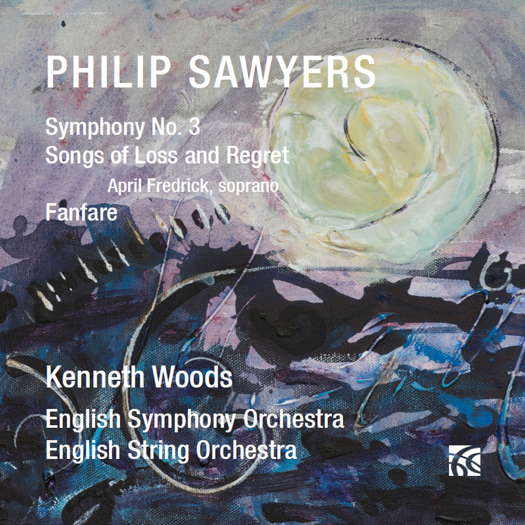- Eastbourne
- Ghana
- Francesco Veracini
- Bermuda
- Cristina Deutekom
- Hugo Emil Alfvén
- Franz Josef Haydn
- Trondheim Symphoniorkester

A Very Original Compilation
GEOFF PEARCE appreciates Piotr Anderszewski's recordings of Janáček, Szymanowski and Bartók
'... dazzling technique ...'
This recording, by Warner Classics, showcases music which is strongly influenced by folk music, and is well removed from the romantic piano tradition. The Bartók and Janáček works were written around 1910-11 and the Szymanowski mazurkas, somewhat later, from the 1920s and early 30s.
At the time of writing On an overgrown path Leoš Janáček was well in his fifties and his music was drawing considerable attention, especially with his use of Moravian folk music and traditions. The first collection of pieces was originally composed for harmonium, but when the series was finally published in 1910, Janáček had settled on the piano as the medium. He immediately started to compose the second set of pieces - the ones recorded on this disc, completing them the following year.
Janáček's mature style is very recognisable, relying heavily, as I said, on Moravian folk music and rythms and melodic patterns based on the Moravian language. There are five pieces in the second set. The first two were authorised by the composer for publication, but the remaining three were not. The first two were written in 1911, the next two as early as 1900, whilst the last one was also written in 1911. This set also differs from the first set, which have descriptive titles, where the second set just have tempo titles. I do enjoy Piotr Anderszewski's playing of these works. His playing is crisp, his phrasing exact and there is no romantic affectation, which would be unwarranted in all the works presented here.
Listen — Janáček: Allegro (On an Overgrown Path)
(5054197891274 track 5, 4:29-5:16) ℗ 2024 Parlophone Records Limited :
Karol Szymanowski, like Bartók and Janáček, has long been a favorite of mine. He composed mazurkas all his life. In the early part of his creative life, he was strongly influenced by Chopin and then that later Romantic composers. His second period was much more innovative, showing great originality and he used a variety of trechniques including polytonality and atonality, but in his third period, he was influenced strongly by the folk traditions of his homeland. In this Op 50 set, composed from 1926-1931, the mazurkas show this strong folk tradition, with evidence of the influence of Chopin in some of them. The composer drew on themes and influences from the Goral Highlands area of Poland, which are characterised, as the programme notes explain, by a sharpened fourth, flattened seventh and using fifths as a drone. The pianist has selected six of these for this recording.
Listen — Szymanowski: Allegramente - Vivace - Con brio (Mazurkas Op 50)
(5054197891274 track 9, 1:40-2:20) ℗ 2024 Parlophone Records Limited :
The final set of works presented here comprises Béla Bartók's '14 Bagatelles Op 6 Sz 38'. These, composed in 1908, are quite remarkable and mark Bartók's departure from the tonal traditions of nineteenth century music, Indeed the first piece in the set has differing key signatures for both hands. These are short pieces that show a considerable range of mood and styles, and would have probably amazed listeners when they were first performed by the composer in Berlin in 1908. I first heard them when I was a boy, in a series of radio lectures that Lili Kraus gave in New Zealand on the piano music of Bartók (who was one of her teachers), and I have been drawn to them ever since.
Listen — Bartók: Rubato (14 Bagatelles)
(5054197891274 track 23, 2:17-3:14) ℗ 2024 Parlophone Records Limited :
I do like Piotr Anderszewski's recordings of these works very much. He has an emotional detachment, when required, a dazzling technique that is not there just for show, a meticulous attention to detail and a great clarity and attention to the melodic line. This is a very original compilation that I will always enjoy coming back to.
Copyright © 8 January 2024
Geoff Pearce,
Sydney, Australia





